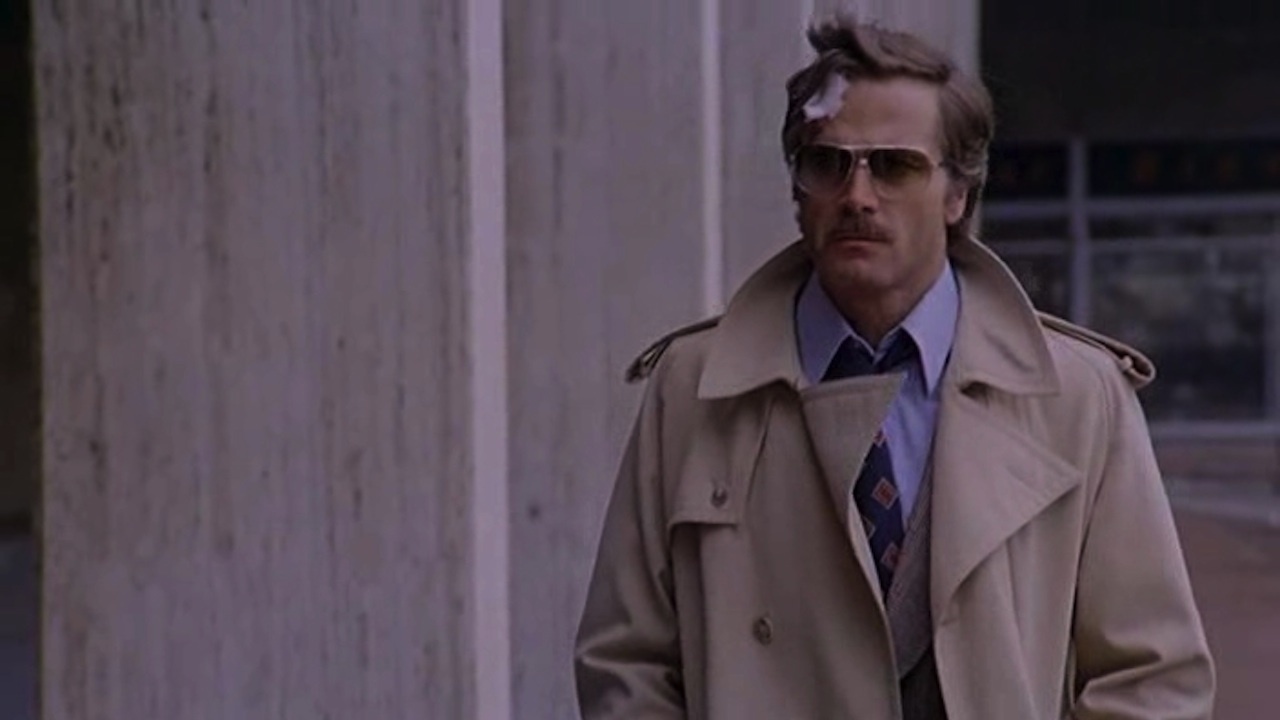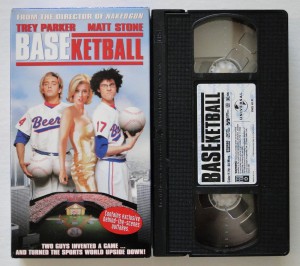
In the included interview on the Blue Underground DVD, Street Law director Enzo G. Castellari notes that Italian crime thrillers “are basically westerns with Alfa Romeos and motorbikes.” Having the great Franco Nero, Django himself, star in your movie as a lone-wolf antihero certainly helps with that comparison. Though if anything, Street Law has more in common with Sergio Corbucci’s other gloriously bleak spaghetti western,The Great Silence. Both are movies about wronged chaotic-good types who seek out revenge when the law turns out to be mostly useless, despite being in way over their heads given the criminal element they’re dealing with.
Nero stars as Carlo Antonelli, a victim of both a break-in at his house and a beating/kidnapping during a hold-up. Both crimes are perpetrated by the same trio of thugs, one of whom looks suspiciously like Steely Dan frontman Donald Fagen. Once ditched by the thugs, Carlo swears that he’ll kill the bastards if he ever sees them again. After the police prove themselves ineffective, he sets off on a Dirty Harry-esque quest to exact some justice, lack of connections to the city’s underbelly be damned. In this way, Street Law is a crystallization of a very specific form of middle-class power fantasy where if you have enough ire and ammo, you too can kick some bad guy ass.
Though here, vigilantism is not framed as a vengeful act per se, but more as as a revolutionary one. Just before the opening credits roll, inside Carlo’s apartment, one of the truants piss on a framed piece of agit-prop urging Italian citizens to rebel against the Germans during World War II. Carlo, presumably a former member of La Resistenza, is now a portrait of middle-class, middle-aged squareness. It’s almost as if his violent, single-minded quest is a way to channel these dormant revolutionary urges outside just distrust of the fuzz. In a sense,Street Law is about the folly of a one-man revolution, but it is above all else a vibrant, scuzzy Euro-crime thriller.
Genre movie legend Castellari keeps his camerawork loose, ready to jut to where the action is at a moment’s notice. The action sequences, especially the multiple car chase sequences, favour the patient dynamism of long takes and POV shots to covey speed, scope, and impact. Bullet hits, pistol whips, and car crashes are equally blunt and intense. Overall, there’s a pulpy immediacy to how the film is put together that makes the film breezy and exciting, even during its more subdued passages.
Nero, charismatic actor that he is, anchors the film with a solid performance. With his piercing, slightly made-up baby blues and his for-the-ages looks of incredulity as he both commits and experiences acts of violence, he lends Carlo an odd, effective mix of frailty and malice. This is the central paradox of the character: he’s consistently in over his head and yet refuses to acknowledge that reality. It’s as if he doesn’t realize the very real danger he’s putting himself in. When a part of his half-assed plan works, he quietly smiles to himself, as if he were just a child playing cops and robbers.
Street Law‘s score, composed by returning Castellari collaborators Guido and Mauricio De Angelis, uses ear-splitting acid-rock to underscore the movie’s abundance of bad vibes. There’s something innately satisfying about seeing Nero being chased by a Mustang in slow motion while amp-busting guitars ring out on the soundtrack. This whole mess of shootouts, car chases, and malaise is drenched with the distinctive texture of a contemporaneous grindhouse print. I don’t know if this was a conscious decision by the folks at Blue Underground, but it’s certainly a welcome intangible quality as far as I’m concerned.
Ultimately, Street Law rises above the status of mere Dirty Harry ripoff by virtue of Franco Nero’s performance, and the underlying post-revolutionary blues of its setting. Enzo Castellari’s punchy direction ensures that this tale of misplaced middle-class rage is as zippy as it is gritty. But mostly, it works as a cool piece of pulp scuzz from a man who made a career out of doing just that.
—
Directed by Enzo G. Castellari; written by Massimo De Rita; starring Franco Nero, Giancarlo Prete, and Barbara Bach; 105 minutes.
Street Law is available:
- For rental and purchase through Amazon Instant
- On DVD



 Derek
Derek
 Isabelle
Isabelle